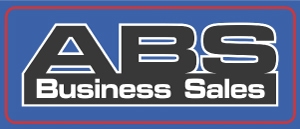Asymmetric Information And Buying A Business – A Principled Approach
Asymmetric information is one of the many pros and cons about buying a business. This article by Forbes lists some of them. There are many more articles that talk about why you should or should not buy a business.
I want to talk about a tenet that does not get much of a mention in the literature outside technical articles. It is more of an economic and financial concept than a straightforward business rule and it is all about asymmetric information.
Asymmetric information results from the unequal knowledge of parties to an economic transaction.
Asymmetric information between parties to the sale of a business is so common that it is the rule rather than the exception.
Small to medium-size businesses are illiquid assets can be difficult to price.
In my role as a valuer, the standard I have adopted is the one by the International Valuation Standards Committee. It uses a principle wherein the parties to a transaction act ‘knowledgeably, prudently and without compulsion’. This standard does not prevent asymmetric information between the parties.
Asymmetric information is a feature of a healthy market economy. It is an integral part of specialisation, which leads to efficiencies. Specialisation leads to higher productivity and through trade. This increased productivity provides greater value to other participants in trade.
In the transaction of a business, asymmetric information can allow a seller to take advantage of a buyer. This is because the seller has more knowledge of the good being sold than the buyer.
The Lemon and Adverse Selection
The problem of asymmetric information elegantly stated in a theory by Nobel Prize winning economist George A. Akerlof. It is in a research paper published in 1970 in The Quarterly Journal of Economics, titled “The Market for ‘Lemons’: Quality Uncertainty and the Market Mechanism,”.
Lemon is a colloquial term for a vehicle that has many problems and defects that hurt its utility.
The theory assumes that the seller of a vehicle in the used car market has more information regarding its true value than the buyer.
The outcome of this is that the buyer will not want to pay more than the average price of the car, even if its quality is above average. This confers benefits to the seller if the car is a lemon because they can sell it for more than its value. It is a disadvantage if the car is premium because no one will pay for the extra value.
This principle extends in various ways to other markets, including the small to medium business market.
Asymmetric information and the Lemon principle means that low value businesses force high value businesses out of the market. The seller believes they will not get the higher value the business deserves.
This is especially so where there is no intermediary. As outlined below, one protection against the problem of asymmetric information is to use an intermediary.
A Business Broker Is An Important Intermediary
Using a business broker when transacting a business allows the law of repeat dealings to come into play. This is one step away from the law of repeat relationships, but still holds a lot of protection.
The laws of repeat relationships and repeat dealings come into the ambit of agency relationships. With the former, a patient admitted to a hospital would be an example. The buyer, in this case, is the patient. Clearly, they have less information about their health and wellbeing than the doctor does.
An agency relationship compensates for this by providing an incentive for both the patient and the doctor to produce an efficient outcome.
To avoid damage to their reputation or getting sued, the doctor has an incentive to be diligent in diagnosis and treatment. This is driven in part by a repeating relationship between the doctor and patient whereby both are better off if they deal fairly with one another.
We can see the role of a broker similarly. The difference is that there is rarely a repeat relationship since a business sale is one off in nature. However, a broker will seek to build and maintain an excellent reputation. That will lead to playing a role in other transactions or repeat dealings.
Avoid Overpaying
My experience as a broker has shown me that where a buyer has overpaid for a business, it is often where a broker was absent. It happens in situations where the transaction occurs between family members, friends or employer and employee.
Transactions between close parties can be mutually beneficial. However, it pays to get professional independent advice. The tragedy is where overpayment is not apparent for many years until the business is for sale again. The seller discovers there is no way they will reach the price they have in mind built on expectations of the original purchase. They had paid too much.
What all this means if you wish to purchase a business is to deal with the disadvantage that can come with asymmetric information. It will give you the best chance of avoiding an adverse selection. These steps include, but are not limited to:
- Using a solicitor so that who can advise on warranties and guarantees, among other things;
- Using an accountant who can verify the profitability of the business;
- Undertake the transaction in a framework of regulations such as that provided by the Office of Fair Trading in QLD; and
- Use a business broker so that the transaction is exposed to the market and it can achieve the best chance of transacting at a genuine market value.
The guide to whether you should buy a business or establish one is partly a value proposition. You can meet with success either way, as you can meet with failure.
Some of the difference depends on character. My colleague Hugo Martin and I have a tongue-in-cheek discussion about this in one of our regular Pinot Friday segments.










